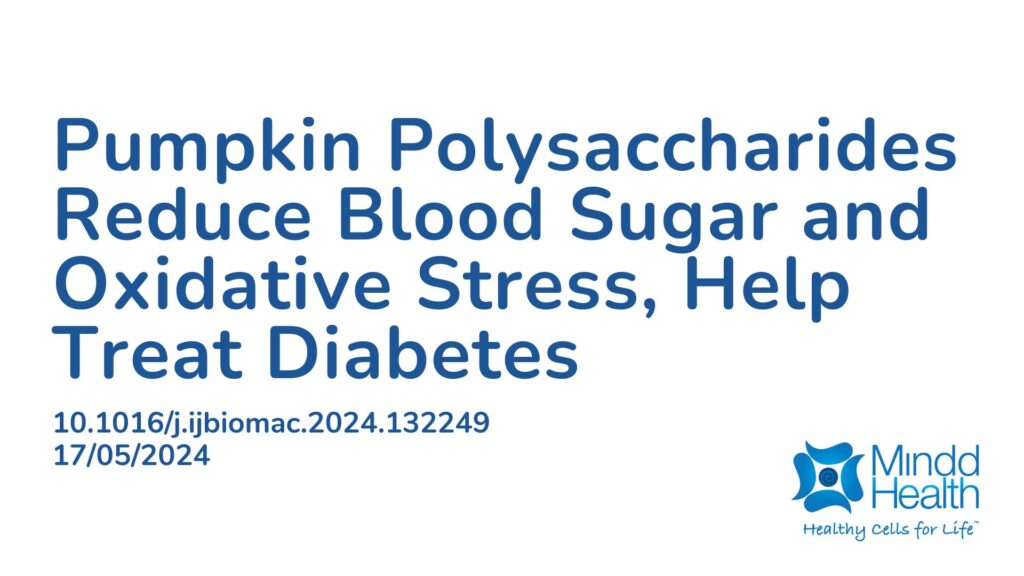Summary:
Diabetes is a widespread chronic disease and a major risk factor for many health conditions. Oxidative stress significantly contributes to diabetes development by damaging beta cells, which are vulnerable due to low antioxidant defenses. Protecting these cells from oxidative damage is a key focus of diabetes treatments. Current diabetes medications, such as metformin and rosiglitazone, can cause side effects including digestive issues and liver problems. Although newer treatments exist, many patients still struggle to control their diabetes. Lifestyle changes, particularly improvements in diet and physical activity, remain important for managing the disease. Natural polysaccharides found in plants, fruits, vegetables, and fungi have shown promise for their blood sugar-lowering effects. Pumpkin is widely cultivated and recognized as a natural medicinal food. Pumpkin polysaccharides have attracted attention for their potential to reduce blood sugar and support pancreatic cell regeneration. These compounds partly work by reducing oxidative stress and inflammation and by activating insulin-related pathways. The researchers investigated the effects of pumpkin polysaccharides on acute diabetes. Treatment lowered blood glucose levels, improved glucose tolerance, and increased liver antioxidant enzyme activity while reducing markers of oxidative damage. Genetic and metabolic analyses also revealed that pumpkin polysaccharides influenced pathways involved in methionine, cysteine, glycerol phospholipid, and linoleic acid metabolism. These findings suggest that pumpkin polysaccharides help reduce high blood sugar and oxidative stress by regulating important metabolic pathways, highlighting their potential as a natural approach for managing diabetes.
Abstract:
Pumpkin polysaccharide (PPe-H) can perform physiological functions through its antioxidative and hypoglycemic effects; however, the mechanisms through which PPe-H regulates abnormal glucose and lipid metabolism caused by oxidative stress injury remain unclear. In the present study, streptozotocin was used to generate an acute diabetic mouse model, and the effects of PPe-H on glucose and lipid metabolism impaired by oxidative stress in diabetic mice were studied. PPe-H significantly reduced blood glucose levels and enhanced the oral glucose tolerance of diabetic mice under stress injury (p < 0.05). The analysis of liver antioxidant enzymes showed that PPe-H significantly enhanced the activities of SOD and CAT (p < 0.05), increased the GSH level, and decreased the level of MDA (p < 0.05). Transcriptomic and metabolomic analyses of the liver tissues of mice revealed characteristic differences in the genetic and metabolic levels of the samples, which showed that PPe-H treatment may play a positive role in regulating the metabolism of methionine, cysteine, glycerol phospholipid, and linoleic acid. These results indicated that PPe-H alleviated the symptoms of hyperglycemia by regulating metabolites related to oxidative stress and glycolipid metabolism in diabetic mice.
Article Publication Date: 17/05/2024
DOI: 10.1016/j.ijbiomac.2024.132249



